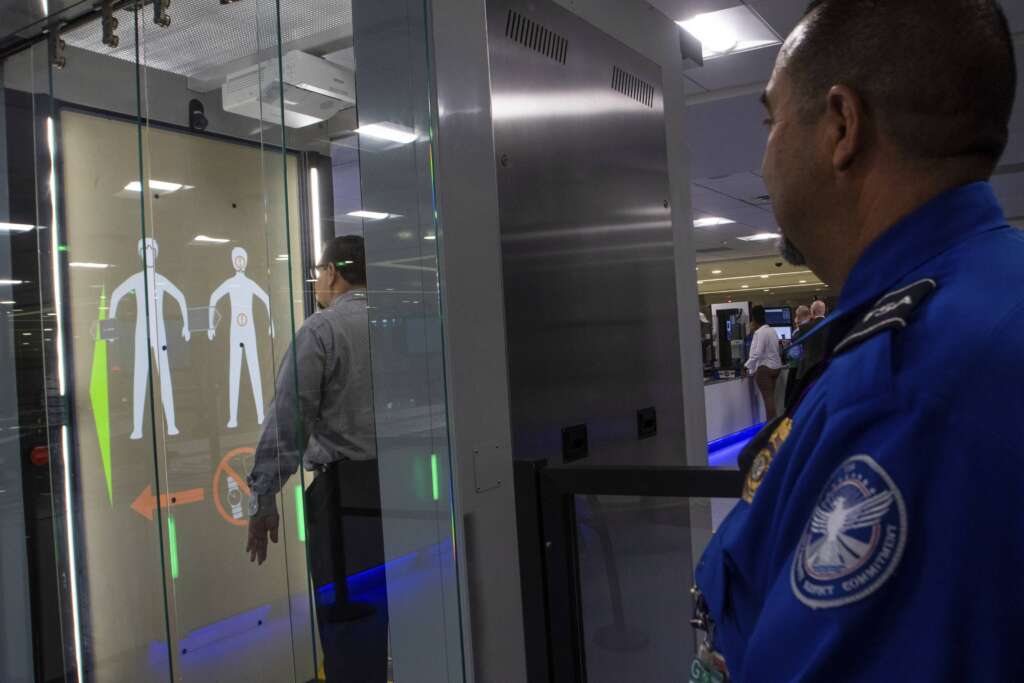TSA chief sees potential for AI to reduce burdens on security screeners

The Transportation Security Administration is experimenting with using artificial intelligence and machine learning algorithms to detect explosives and other prohibited items as part of the luggage screening process.
TSA Administrator David Pekoske said the technology, still in development, could take some burden off transportation security officers, especially during peak travel periods.
“We’re going to see some days this summer that might have 3.1 million passengers, and you figure 3.1 million means well over 6 million images that officers are reviewing on a given day,” Pekoske said Tuesday before the House Appropriations Committee’s homeland security subcommittee. “That’s a lot. What we find in our testing is that the constant review of images can be very fatiguing.”
The Department of Homeland Security writ large is exploring different AI applications across many missions and components. Customs and Border Protection, for instance, is using “AI-curated synthetic data” to train computer vision models to detect narcotics and other contraband in vehicles at ports of entry.
Though it’s not yet deployed, Pekoske said the TSA and DHS’s Science and Technology Directorate have been developing a way for X-ray screening machines to detect explosives. He said the machine can then alert screening officers for further action.
TSA is now working on how to expand that initial detection capability to other prohibited items.
“We’re using artificial intelligence to train the technology to detect all the prohibited items, so all the explosives and all of the other knives and firearms, etc. that are there,” Pekoske said.
TSA has also been expanding its use of facial comparison technology – considered the agency’s primary AI use case to date – to verify a passenger’s identity at airport screening checkpoints. TSA says the technology helps streamline and speed up the airport screening process.
While some lawmakers have pushed to ban TSA’s use of facial recognition, the agency says the use of facial verification is optional. TSA also says passengers should be able to use an alternate verification method without losing any time or their place in line.
TSA looks to grow more flexible workforce
Meanwhile, TSA has seen its attrition rate drop from 20% to nearly 11%, Pekoske testified, after Congress approved a historic pay increase for transportation security officers and other employees last year. The increases brought TSA pay in line with much of the rest of the federal workforce.
The fiscal 2024 funding agreement reached by Congress last month continues the new salary rates. Pekoske said TSA is seeking $377 million in fiscal 2025 to annualize its new compensation plan.
While attrition is down, TSA still hired 9,000 officers last year to keep pace with rising air travel. And Pekoske pointed to how the agency is seeking funding to increase its numbers to meet customer demands, while also providing the TSA workforce with some much needed flexibilities.
“I would really like to get to the point where we have a little bit more flexibility in our TSO numbers, because right now, it’s a very sharp pencil where we figure out exactly how many people we need – life doesn’t work that way. People get sick, they have other things going on,” Pekoske said.
“What I’d like to do is just build up the size of the workforce a little bit more to provide that flexibility,” he added. “So there’s a lot we have to do on our end to make sure that we resource it well.
Pekoske’s comments come after TSA and the American Federation of Government Employees reached a landmark collective bargaining agreement. The seven-year contract includes some of the flexibilities Pekoske touched on, including expanded official time and fewer restrictions on their sick leave policy.
AFGE ratified the agreement in March. TSA leadership is currently completing its final review.
“We should sign that next month,” Pekoske said during this week’s hearing.The post TSA chief sees potential for AI to reduce burdens on security screeners first appeared on Federal News Network.
Welcome to Billionaire Club Co LLC, your gateway to a brand-new social media experience! Sign up today and dive into over 10,000 fresh daily articles and videos curated just for your enjoyment. Enjoy the ad free experience, unlimited content interactions, and get that coveted blue check verification—all for just $1 a month!
Account Frozen
Your account is frozen. You can still view content but cannot interact with it.
Please go to your settings to update your account status.
Open Profile Settings